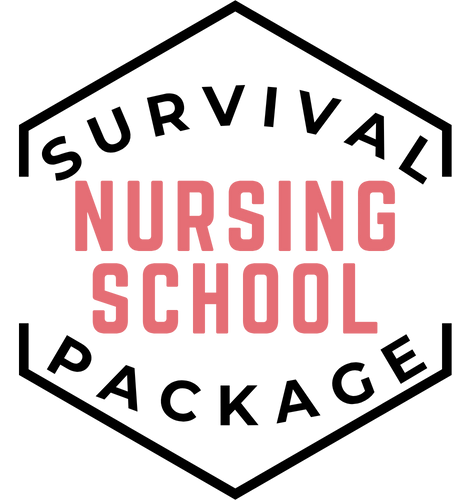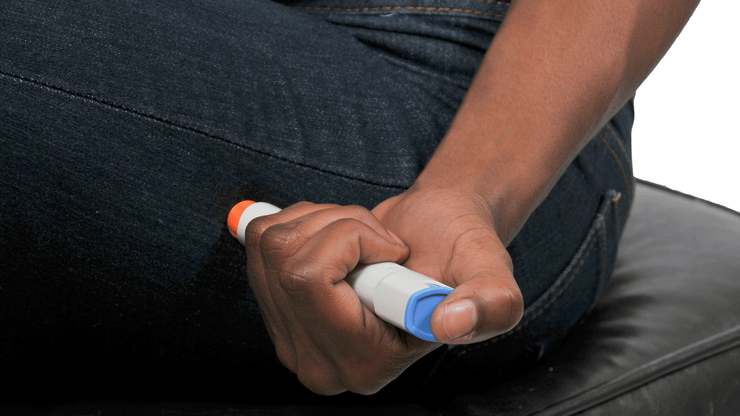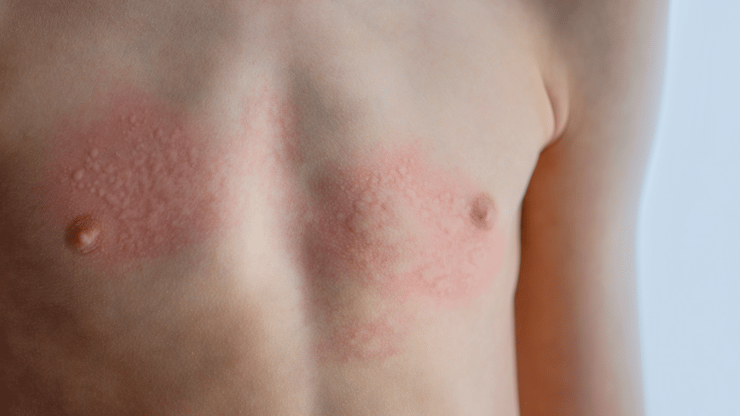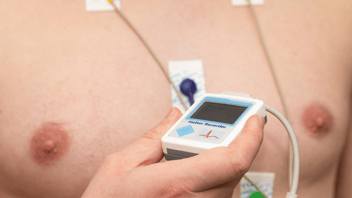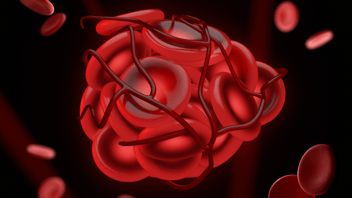Don't Go Into The NCLEX Exam Without Knowing This About Anaphylaxis
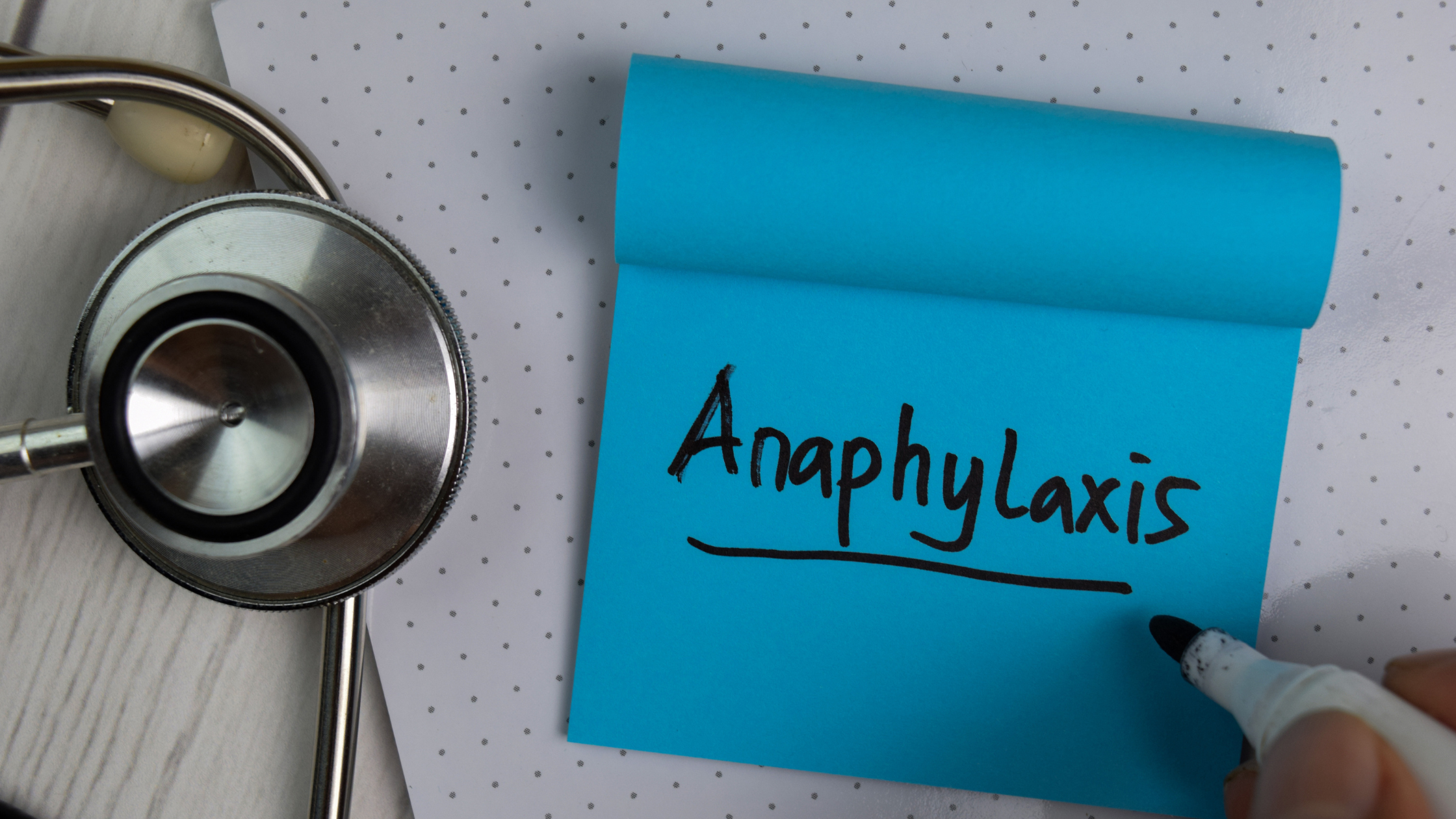
Understanding Anaphylaxis
Have you ever seen anyone that carries an Epi-pen in their bag? Have you ever wondered what that was for? Patients that have a serious allergy to something, such as peanuts, can have an anaphylactic reaction that can cause their airways to be compromised. Without immediate intervention, the patient can have a complete airway collapse or shock. It is important to learn about the proper assessment and management of treating anaphylaxis, to ensure a positive outcome for the patient.
Struggling to keep up in class?
The Nursing School Survival Package gives you a daily plan, visual cheatsheets, and everything you need to stop falling behind.
👉 Get the system that actually works →
General Information on Anaphylaxis
Massive allergic response → Histamine release from damaged cells causes swelling, inflammation, and massive vasodilation that can lead to distributive shock
Nursing Assessment for Anaphylaxis
1. Urticaria (hives)
2. Angioedema (facial swelling) → lips, tongue, mouth, throat, and risk for airway compromise
3. Skin flushing
4. Anaphylactic Shock→ Hypotension and cardiac arrest
Therapeutic Management for
Anaphylaxis
1. Monitor respiratory and cardiovascular status
2. Administer Epinephrine IM immediately
a. Adults – 0.3 mg 1:1000
b. Children – 0.15 mg 1:1000
c. EpiPen Auto-injector
d. Goal = prevent life-threatening airway collapse or shock
3. Administer Oxygen, antihistamines, corticosteroids, and IV fluids as needed to support hemodynamics
Nursing Case Study for Anaphylaxis
Patient Profile:Name: Ms. Molly Spears
Age: 28 years old
Gender: Female
Medical History: No known allergies
Presenting Symptoms:
- Sudden onset of generalized hives and itching
- Swelling of lips and tongue
- Difficulty breathing and wheezing
- Hypotension and tachycardia
- Physical Examination: Ms. Spears displayed signs of anaphylaxis, including urticaria and angioedema
- Allergy History: Patient had no known allergies or prior history of anaphylactic reactions
Medical History:
Ms. Spears had no significant medical history of allergies or previous anaphylactic reactions
Diagnostics:
Ms. Spears was diagnosed with anaphylaxis, a severe and potentially life-threatening allergic reaction.
1. Immediate Response:
- Called for emergency medical assistance and initiated the anaphylaxis protocol.
- Administered intramuscular epinephrine (0.3 mg) promptly to alleviate symptoms and stabilize blood pressure.
- Assessed airway patency and administered high-flow oxygen through a non-rebreather mask to ensure adequate oxygenation
- Established Intravenous access for fluid resuscitation and potential medication administration
- Monitored vital signs, including blood pressure, heart rate, respiratory rate, and oxygen saturation continuously
- Observed for any signs of improvement or deterioration in the patient’s condition.
- Conducted a thorough review of the patient’s recent activities and exposures to identify the triggering allergen
- Administered antihistamines and corticosteroids intravenously to reduce inflammation and manage allergic reactions
- Initiated fluid resuscitation with intravenous normal saline to maintain adequate blood pressure and perfusion
- Provided emotional support to the patient and family during the crisis
- Educated the patient and family about anaphylaxis, allergen avoidance, and the importance of carrying an epinephrine auto-injector for future preparedness
Outcome:
With prompt nursing care and medical intervention, Ms. Spears' anaphylactic symptoms improved significantly. The administration of epinephrine, antihistamines, and corticosteroids stabilized her condition, and her vital signs returned to normal.
Conclusion for Anaphylaxis NCLEX Review
This Anaphylaxis review provides essential knowledge for approaching the NCLEX with confidence. Understanding its prevention, management, and interventions empowers nurses to provide adequate care and save lives.
Struggling to keep up in class?
The Nursing School Survival Package gives you a daily plan, visual cheatsheets, and everything you need to stop falling behind.
👉 Get the system that actually works →
You CAN Do This
Happy Nursing!



